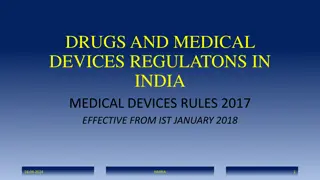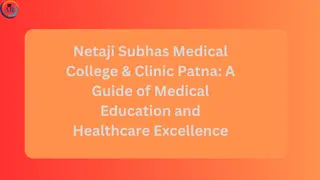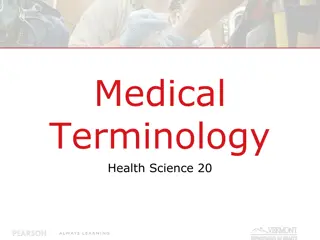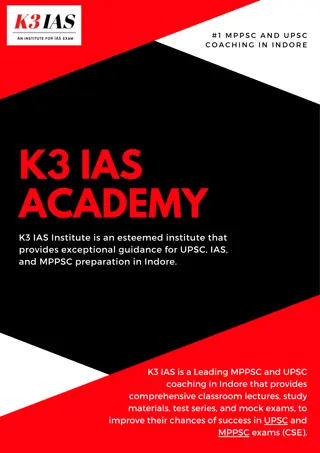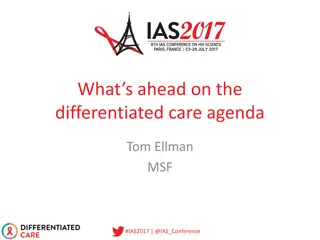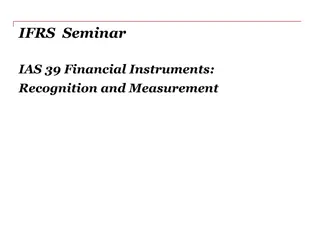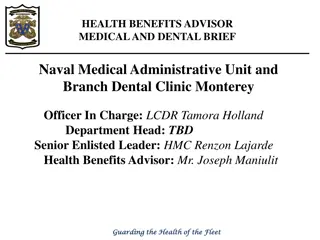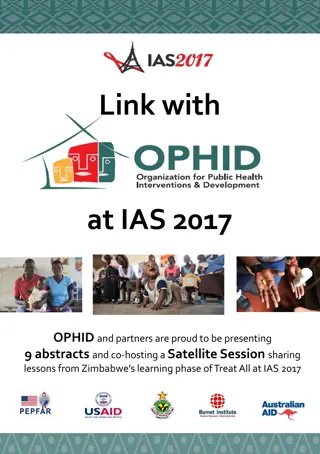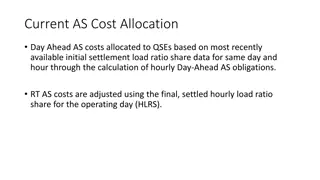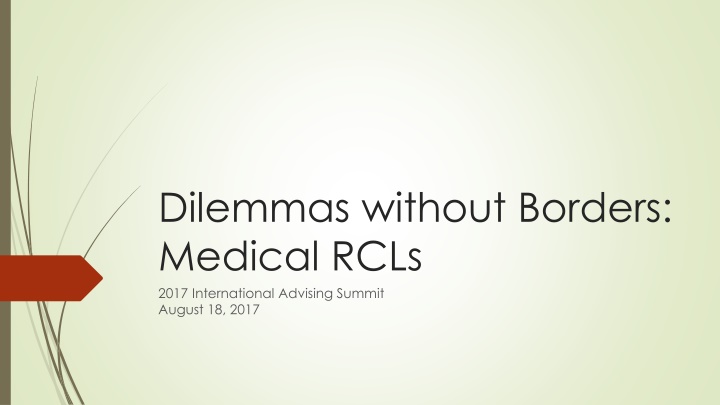
Navigating Medical Course Load Regulations for International Students
Learn about regulations for reducing course loads due to medical conditions for international students, including the process, requirements, and limitations. Discover scenarios and guidelines presented by industry experts at an International Advising Summit in 2017.
Download Presentation

Please find below an Image/Link to download the presentation.
The content on the website is provided AS IS for your information and personal use only. It may not be sold, licensed, or shared on other websites without obtaining consent from the author. If you encounter any issues during the download, it is possible that the publisher has removed the file from their server.
You are allowed to download the files provided on this website for personal or commercial use, subject to the condition that they are used lawfully. All files are the property of their respective owners.
The content on the website is provided AS IS for your information and personal use only. It may not be sold, licensed, or shared on other websites without obtaining consent from the author.
E N D
Presentation Transcript
Dilemmas without Borders: Medical RCLs 2017 International Advising Summit August 18, 2017
Presenters Christina Luther, Director, International Student & Scholar Services Portland State University lutherc@pdx.edu (503) 725-5468 Andrew Shiotani, Assistant Director, International Student & Scholar Services University of Oregon ashiotan@uoregon.edu (541) 346-5830
8 CFR 214.2(f)(6)(iii)(B) (B) Medical conditions. The DSO may authorize a reduced course load (or, if necessary, no course load) due to a student's temporary illness or medical condition for a period of time not to exceed an aggregate of 12 months while the student is pursuing a course of study at a particular program level. In order to authorize a reduced course load based upon a medical condition, the student must provide medical documentation from a licensed doctor, doctor of osteopathy, or licensed clinical psychologist to the DSO to substantiate the illness or medical condition.
(contd) The student must provide current medical documentation and the DSO must reauthorize the drop below full course of study each new term, session, or semester. A student previously authorized to drop below a full course of study due to illness or medical condition for an aggregate of 12 months may not be authorized by a DSO to reduce his or her course load on subsequent occasions while pursuing a course of study at the same program level. A student may be authorized to reduce course load for a reason of illness or medical condition on more than one occasion while pursuing a course of study, so long as the aggregate period of that authorization does not exceed 12 months.
Summary of Regulatory Requirements If approved by DSO, allows reduced course load or no course load, if medically necessary Requires medical documentation from a licensed doctor, osteopath, or clinical psychologist Requires authorization by the DSO for each term that the condition persists Can be authorized for no more than an aggregate of 12 months per degree level
Classic Scenario 1. Student gets ill 2. Student sees doctor / psychologist / osteopath 3. Student obtains letter explaining condition and recommending that the student take a reduced course load or no courses 4. DSO authorizes an RCL for the term 5. Student recovers 6. Student resumes full course of study in next term
Complicating Factors Ambiguous or missing documentation Control of documentation Students who need, but don t request, a medical RCL Emergencies Chronic conditions Retroactive medical issues that surface later Allowable benefits while on a medical RCL
Ambiguous or Missing Documentation Student provides medical documentation, but documentation lacks a specific recommendation from medical provider Student provides medical documentation, but medical provider refuses to recommend whether student should take an RCL or not Student provides medical documentation that recommends a reduced course load, but lacks details about condition, length of reduced course load, or whether partial or complete withdrawal is warranted.
Documentation Control and Access Medical records maintained by university s health or counseling center, but no release provided to DSO Outside staff express provide concerns about releasing information under HIPAA
Emergencies Student has obvious medical emergency (e.g., car crash, heart attack) and cannot provide medical documentation on the spot Student disappears from classes; it is discovered later that the student was hospitalized due to serious exigent medical reasons Title IX sexual violence issues
Students Who Need but Dont Request a Medical RCL Student is seemingly suffering from significant illness or condition affecting academic attendance / participation, but refuses to seek medical assistance or obtain appropriate documentation
Chronic Conditions Student has chronic condition or disability and is nearing 12- month maximum allowed for the student s current degree level
Retroactive Medical RCLs Student requests retroactive withdrawal at a later date, after the term is over / completed Student provides documentation of a significant medical event (e.g., hospitalization, suicide attempt, serious but temporary illness) but is unable to obtain letter of recommendation from medical provider
Immigration Benefits While on Medical RCL Student wants to continue working on-campus (or obtain off- campus employment authorization) while taking reduced course load (or no course load) Student seeks to return home for a short trip during medical RCL term and wants travel endorsement
Summary Communicate rules and regulations clearly to students Create institutional policies and practices to accommodate various complex scenarios Work with campus partners to clarify policies and procedures for sharing information under FERPA and HIPAA while complying with DSO reporting obligations


